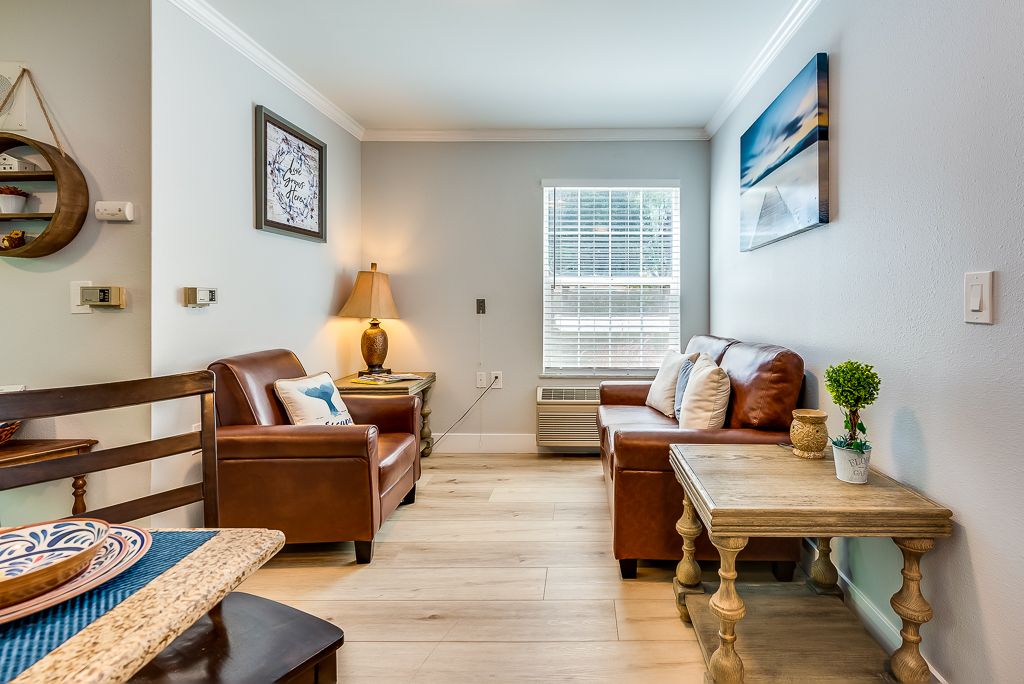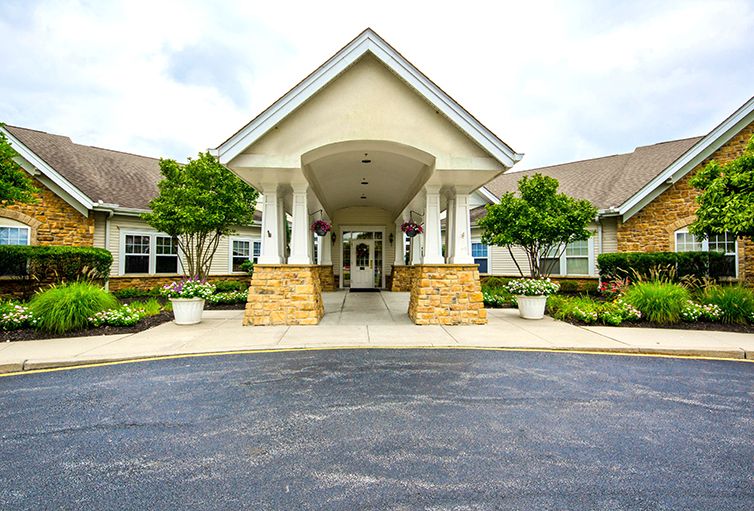Personalized Memory Care Options Focused on Unique Conditions
Personalized Memory Care Options Focused on Unique Conditions
Blog Article
All About Memory Care Providers: Why Small Memory Care Homes Are a Great Choice
Memory treatment solutions play a crucial role in supporting people with Alzheimer's and dementia. Little memory treatment homes stand apart for their individualized strategy and intimate setting. With lower staff-to-resident ratios, these homes promote stronger links and customized treatment. Residents profit from improved social interactions and a secure environment. As families explore alternatives, understanding the unique advantages of small memory treatment homes ends up being crucial. What elements should be considered when choosing the best home?
Recognizing Memory Treatment Solutions
While several may know with basic senior treatment alternatives, comprehending memory care services is important for families dealing with the obstacles of cognitive decline. Memory treatment particularly caters to people with problems such as Alzheimer's illness and other kinds of mental deterioration. These solutions provide a structured setting that concentrates on enhancing the top quality of life for homeowners with specialized treatment and support.Memory care facilities are developed to guarantee safety and safety, often including safeguarded settings to protect against straying. Trained employee are readily available all the time to aid with daily tasks, medicine monitoring, and personal treatment. In addition, memory care programs frequently consist of cognitive excitement activities, customized to engage citizens and promote mental wellness. Family members can benefit from comprehending these solutions, as they make it possible for notified choices concerning their liked ones' treatment, making certain that their particular needs and preferences are attended to in a compassionate and supportive manner.
The Advantages of Little Memory Care Residences
Tiny memory treatment homes supply distinctive advantages that can greatly boost the top quality of life for locals with cognitive problems. One significant benefit is the intimate setting, which permits customized interactions among personnel and citizens. This smaller sized setup cultivates meaningful partnerships, lowering sensations of isolation and stress and anxiety usually experienced by people with memory issues.Additionally, the lower staff-to-resident ratio in little memory treatment homes allows caretakers to provide more alert guidance and support. This method not just enhances security but likewise promotes a sense of security for the residents.Moreover, tiny memory treatment homes can adapt swiftly to the one-of-a-kind requirements and preferences of each local, allowing for an extra homelike ambience. Such an atmosphere can motivate social engagement and involvement in activities, inevitably enriching the daily experiences of those dealing with cognitive impairments.
Personalized Care Plans for Residents
Personalized treatment plans are crucial in memory treatment homes, as they cater to the special requirements and choices of each homeowner. These strategies begin with extensive analyses carried out by proficient specialists, that review cognitive capacities, case history, and personal passions. This customized approach warranties that care is not only reliable yet additionally respectful of each individual's self-respect and autonomy.Moreover, individualized treatment plans are flexible, enabling adjustments as residents' demands progress in time. This adaptability cultivates a complacency and familiarity, which is necessary for people coping with memory obstacles. Caretakers are trained to apply these strategies consistently, providing support that aligns with the locals' regimens and preferences.Ultimately, customized treatment strategies boost the high quality of life for citizens by promoting engagement, wellness, and freedom, making them a basic aspect of memory care services in tiny memory treatment homes.
Developing a Home-Like Environment
Producing a home-like atmosphere is critical for promoting comfort and familiarity in memory care setups, as it substantially affects citizens' emotional health. Small memory treatment homes typically prioritize customized touches, such as cozy color combinations, family pictures, and acquainted furniture arrangements, which assist homeowners really feel a lot more comfortable. Incorporating aspects similar to a traditional home, like comfy living rooms and common areas, encourages a feeling of belonging.Moreover, using all-natural light and outdoor rooms can enhance the atmosphere, advertising leisure and tranquility. Personnel play a substantial role in keeping this environment by involving with locals in a caring manner, treating them like household. Regular activities, such as cooking or horticulture, can likewise add to a home-like feeling, providing opportunities for locals to join significant experiences. Generally, creating a supporting setting supports cognitive function and emotional stability, making it a necessary aspect of memory care services.
Boosted Social Interaction and Area
Enhanced social interaction and community are necessary elements of memory treatment solutions. By promoting personalized social engagement and developing a family-like environment, these services promote significant connections amongst homeowners. Team occasions and activities even more motivate involvement, assisting individuals feel a lot more consisted of and supported.
Customized Social Interaction
While social communication is important for overall wellness, lots of individuals with memory problems commonly struggle to engage meaningfully with others. Individualized social engagement in memory treatment homes addresses this obstacle by creating tailored tasks that deal with homeowners' unique passions and capacities. By concentrating on individual choices, caregivers can cultivate links that reverberate deeply with everyone. Activities such as art therapy, music sessions, and guided discussions promote cognitive excitement and emotional expression. In addition, tiny team settings motivate friendship and permit published here even more intimate interactions, enhancing feelings of belonging. This method not just combats sensations of isolation yet additionally equips homeowners to maintain a sense of identity, ultimately adding to improved mental health and high quality of life.
Family-like Environment
In a memory treatment setup, cultivating a family-like environment substantially improves social communication and constructs a feeling of community among locals. Smaller memory care homes often focus on intimate settings, permitting homeowners to develop closer links with each other and employee. This nurturing ambience promotes depend on, which is important for individuals with memory disabilities. Locals are more probable to talk and share experiences, creating a supportive network that relieves sensations of solitude. The knowledge of shared spaces and routines adds to a sense of belonging, further motivating social communication (personalized memory care). In such settings, emotional bonds flourish, leading to enhanced overall well-being and a better of life for residents as they browse their everyday experiences together
Group Activities and Occasions

Safety And Security and Safety And Security Attributes in Little Homes
Lots of tiny homes designed for memory care integrate necessary security and safety functions to ensure the wellness of citizens. These homes frequently use protected access and leave factors to avoid straying, a typical concern amongst people with memory problems. Furthermore, surveillance systems and alarm mechanisms improve tracking, guaranteeing that staff can without delay react to any type of unusual activities.Interior layouts are customized for safety, with minimized hazards such as clutter-free paths and sharp corners. Handrails and non-slip floor covering are usually installed to lower the risk of drops. Employee are educated in emergency methods, ensuring they are planned for various situations.Moreover, customized care plans might consist of evaluation of private security demands, providing tailored remedies for each and every citizen. On the whole, these security and safety and security features develop a nurturing environment where residents can grow while preserving their dignity and independence.
Just how to Choose the Right Memory Treatment Home
How can families ensure they choose one of the most suitable memory care home for their enjoyed ones? The decision page requires mindful consideration of several elements. Households ought to assess the facility's team credentials and training, guaranteeing that caregivers are experienced in taking care of memory-related problems. Next, it's essential to analyze the home's atmosphere, focusing on safety functions and whether it cultivates a sense of neighborhood and belonging. Going to the center can offer understanding right into day-to-day tasks and the social atmosphere, which are vital for psychological stimulation and psychological health. Additionally, households ought to ask concerning the care strategies provided, guaranteeing they are customized to specific needs. Lastly, considering the home's place and availability for household check outs can add to a smoother change. By dealing with these aspects, households can make an enlightened decision that prioritizes their liked one's comfort and lifestyle in a memory treatment setup.
Regularly Asked Inquiries
What Qualifications Should Personnel Members in Memory Treatment Homes Have?
Personnel in memory treatment homes need to possess relevant certifications, experience in dementia care, strong interaction skills, and concern. Continuous training in behavioral monitoring and therapeutic interventions improves their capability to support homeowners properly.
How Do Memory Treatment Services Differ From Conventional Assisted Living?
Memory care services focus especially on individuals with memory disabilities, offering customized assistance and organized environments. In comparison, typical assisted living provides general support with daily activities, doing not have the customized technique necessary for those with cognitive obstacles.
What Types of Tasks Are Offered in Memory Care Residences?
Memory care homes commonly provide a variety of activities made to involve residents. Typical options consist of art treatment, songs sessions, cognitive games, workouts, horticulture, and gatherings, all focused on enhancing well-being and cognitive feature.
Can Citizens Bring Their Own Personal Belongings to Memory Care Homes?
Residents can generally read the article bring their very own possessions to memory care homes, enabling them to individualize their space - personalized memory care. This practice assists create a familiar setting, advertising comfort and a feeling of identity for the individuals

How Are Member Of The Family Entailed in the Care Refine?
Member of the family play a crucial function in the care process, usually joining decision-making, attending care meetings, and supplying emotional support. Their involvement fosters a joint atmosphere, improving the citizen's general health and lifestyle. While numerous may be acquainted with general elderly care options, recognizing memory care services is important for households dealing with the obstacles of cognitive decline. These solutions give an organized atmosphere that focuses on enhancing the top quality of life for locals via specialized treatment and support.Memory treatment centers are designed to ensure security and safety and security, often including secured environments to avoid straying. Customized care strategies are crucial in memory care homes, as they cater to the special demands and preferences of each local. Team participants in memory treatment homes should possess pertinent accreditations, experience in mental deterioration treatment, solid interaction abilities, and compassion. Memory care solutions concentrate specifically on individuals with memory impairments, supplying specialized support and structured settings.
Report this page